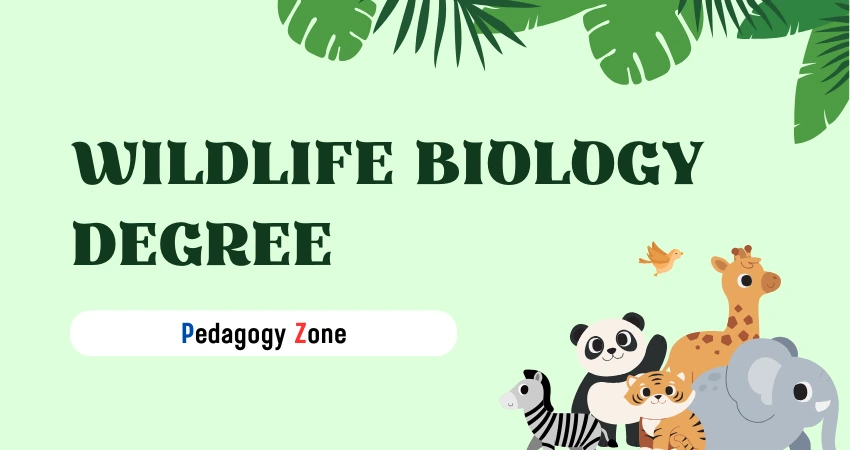Wildlife biology surely is not a field of study for the weak-hearted and weak-minded. This is a field that is tough and requires commitment and an urge to help the ailing global ecosystem.
Suppose you have aspirations of studying the animal environment, saving the last species of animals and making sure their families flourish. In that case, a wildlife biology degree can help you in making your dreams come true.
But let’s be real: you are fundamentally asking yourself, “What Can You Do With a Wildlife Biology Degree?” The solution is contained with the numerous specialized professional roles that enable you to pursue the conservation of various species. It makes you be able to incorporate your love for animals, with practical science, research, and active involvement in the community.
Careers for Animal Lovers
If you would like to work with marine earthlings, help restore beautiful wildlands, or dive into the study of certain species on the verge of extinction, you would love what this profession has to offer.
Job Titles You Might Explore:
- Aquatic Biologist: Concentrates on understanding life at the species and ecosystems of water bodies.
- Fish and Wildlife Biologist: Develops protective approaches for various beings.
- Marine mammal biologist: Engages exclusively on mammals that live in oceans and seas, such as dolphins, whales, and seals.
- Wildlife manager: Responsible for working and looking after wildlife of all forms through its habitats.
- Zoologist: Concerned with the study of animals, their behaviors, genetic make-up and their environments.
Daily Responsibilities
Being a wildlife biologist is never a dull job. There’s a lot of diversity in the daily selection of tasks.
Here are a few most likely duties you will perform while on the job:
- Fieldwork: Performing research on animals in their surroundings, estimating biosphere and its components scale effects and proposing measures to these impacts.
- Experimental studies: Working with animals in controlled conditions to analyze their behavior and responses, as well as any changes in the surroundings.
- Public Outreach: Interaction with society to solve problems that rely on conservation of nature, and to provide the public with information relating to the research.
- Documentation: Discuss research published in scientific journals, including data, hypotheses, and experiments conducted.
- Habitat Management: Providing advice on how to develop and protect biological systems, as well as practices for their use.
- Education: Imparting knowledge of findings through schools, clubs and other government activities.
Essential Knowledge and Skills
More practically, however, the work of wildlife biologists, is integrative of many subjects and will take work to be successful.
Some particularly important disciplines to acquire include:
- Biology and Ecology: Studying the growth patterns of different species on the planet and how those species fit within their ecological niche.
- Mathematics: It is the basis of the developed world, applying statistical relevance through data.
- Geography: Having a fundamental understanding of the topography and hydrology of an area.
- Communication: Using computer-sourced resources for ease of access and the ability to constantly research in depth with less time consumption.
Career Trends
Though it is the field that every person would want to work in, wildlife biology is also a highly competitive one. Job opportunities for wildlife biologists are good in the US Bureau of Labor Statistics.
They anticipate the addition of approximately 1,900 positions for wildlife biologists in the United States. A huge portion of these positions are within federal agencies and state agencies, universities and colleges and non-governmental environmental organizations.
In order to excel, aspiring wildlife biologists often engage in advanced studies and thereafter volunteer or intern in the expected areas. Moreover, having strong community ties within the conservation fraternity might also create more opportunities for them.
For many, wildlife biology does not only constitute getting employed but there is also some sense of deeper responsibility. It is the career for those who wish to see themselves as the custodians of the animal and plant life of the planet.
Yes, it is a long path of education, effort and time, but in turn, it shall be highly rewarding. Whether it is in the form of studying marine mammals, helping in the management of wildlife, or creating awareness against practices that threaten them, you shall make this world a better place to live in.
Beginning with a single step is how one overwrites the limitations, so start reaching out to professionals and trying to get admission into wildlife biology programs. The natural world needs its stewards, and if you are passionate about it, sticking to it will make you one.
Read also: Why is learning human anatomy important for microbiology students






